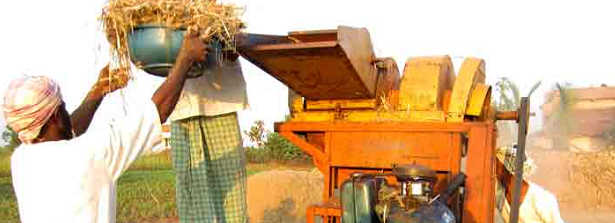
Each year, estimates suggest that 1/3 of all food produced is lost or wasted, making postharvest loss a critical global food security and sustainability issue of today.
About the Course
This online course provides an overview of the issue of postharvest loss of grains by exploring essential physical, technical, and social dimensions of postharvest supply chains and loss prevention methods globally. Key knowledge areas are presented including:
- An overview of postharvest loss
- Supply chain activities such as harvesting, drying, and storage
- Economics and markets
- An introduction to the network of actors working in this field
The course faces the immense challenge of feeding over 9 billion people by the year 2050. To meet these demands, yields will have to more than double using the same amount of natural resources. In recent years, postharvest loss has been recognized by major institutions including the US government, the United Nations, the CGIAR Research Consortium, and several others as a significant opportunity to impact food security and improve livelihoods. Despite this increased attention, a lack of knowledge, technical capacity, and resources remain obstacles for stakeholders worldwide to act on these issues. This course will, for the first time, provide professionals, practitioners, and students, with a comprehensive introduction to postharvest loss processes and begin building capacity for loss prevention worldwide.
Course Syllabus
This course will be broken up into 4 modules covering the following topics:
Week 1: Problem–Global Postharvest Loss
This module will provide an overview of the issue of postharvest loss (PHL) and how this impacts global food security and sustainability. It will also define the postharvest supply chain.
Week 2: Causes–Major Causes & Encounters for PHL
This module will introduce technical, social, and economic factors and situations that lead to postharvest losses. Harvesting, drying, and storage phases will be specifically covered as stages that are both vital in the grain supply chain and in which a great deal of postharvest losses are experienced.
Week 3: Solutions–A Prevention Framework for PHL
This module will introduce a conceptual framework for how losses can be prevented. Theories, methods, and case examples on prevention will be covered.
Week 4: Actors–A Network of Global Stakeholders
This module will explore how the international community is responding to the issue of postharvest loss. It will cover the current state of the postharvest loss prevention field, as well as provide background as to how it developed. Some key projects, initiatives, and approaches will be highlighted.
Visit the website for more background information and to register.
- This event has passed.

